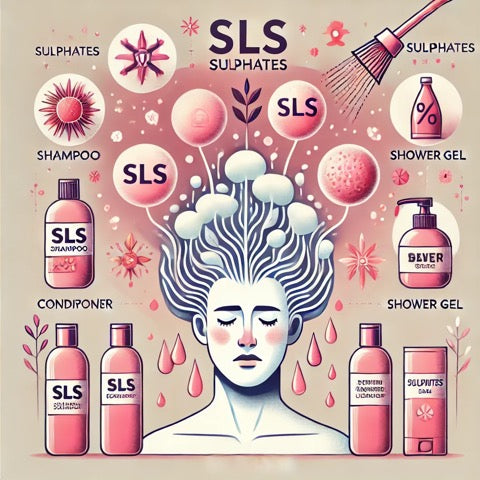
What are Sulphates? And why can they be bad for us?
What are Sulphates?
Sulphates, also known as sulfates, are a type of surfactant commonly found in cleaning and personal care products. They are responsible for the foaming and lathering properties in products such as shampoos, body washes, and toothpaste. The most common types of sulphates used in these products are sodium lauryl sulphate (SLS) and sodium laureth sulphate (SLES) - notice the slight change? - using Sodium Laureth Sulphate ensures a product can be labelled as SLS free!
Why can Sulphates be Bad for Us?
While sulphates effectively cleanse and remove dirt and oil from the skin and hair, they can also have some potential drawbacks. One of the main concerns is that sulphates can be harsh and drying, stripping the skin and hair of their natural oils. This can lead to dryness, irritation, and sensitivity, especially for individuals with sensitive skin or conditions like eczema.
Furthermore, some studies suggest that prolonged exposure to sulphates may have negative effects on the environment, such as water pollution. When washed down the drain, sulphates can be difficult to break down and may accumulate in water sources, posing a risk to aquatic life.
How to Avoid Sulphates?
If you are looking to reduce your exposure to sulphates, there are several steps you can take. One option is to choose sulphate-free products that use alternative surfactants to create lather and foam. Look for labels that specifically mention "sulphate-free" or "no SLS/SLES." When formulating my products I wanted something gentle without compromising on the efficacy, so I've used Sodium Cocoyl Isethionate, it's derived from vegetables, It has high foaming performance, is extremely mild, as well as soft and silky skin after-feel characteristic.
While sulphates play a role in many personal care products, being aware of their potential risks can empower you to make healthier choices for yourself, loved ones and the environment. Consider exploring sulphate-free alternatives to support your skin's health and minimize your impact on the planet.